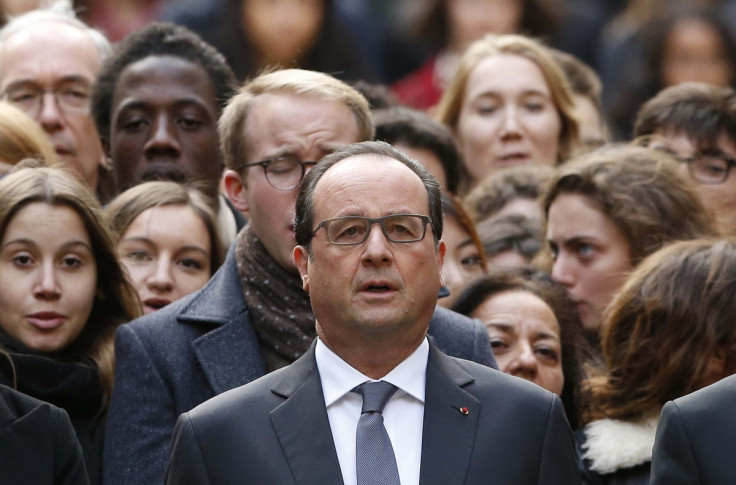Paris attacks: Islamic State may regret picking a fight with France

France developed an unfair reputation as peace-niks in the early 2000s when the then foreign minister Dominique de Villepin and president Jacques Chirac vehemently opposed the US-led invasion that sought to overthrow Saddam Hussein. The move famously led to a surge in anti-French sentiment in the US that at one point saw fast food outlets serve Freedom Fries (instead of French Fries) in protest at opposition to the Iraq war.
That was then. France is a different proposition these days as French President Francois Hollande confirmed with his announcement to the French parliament that he will meet with US President Barack Obama and Russian president Vladimir Putin to discuss military action to end the Syrian war. It is a good time to reflect on how much has changed in 12 years.
Indeed in an immediate response to Friday's attacks on her capital, France has already launched air strikes on the Islamic State (Isis) stronghold of Raqqa and said on Monday that its aircraft carrier the Charles de Gaulle is due to leave for the Persian Gulf on Thursday, effectively doubling its military capacity in the Middle East.
Since Iraq, France has led major interventions in Libya, Mali and Nigeria, backing anti-Gaddafi rebels and fighting al-Qaeda and Islamic State-affiliated militants.
France may have been hesitant in its involvement in the Middle East since the end of the war in Libya – in Iraq, for example, it has flown some 200 sorties to America's 6,400 since November 2014 – but when it has committed to intervention, it has done so fully. At the height of the conflict in Mali, where France intervened to push back al-Qaeda-affiliated militias in January 2013, there were as many as 4,000 French soldiers on the ground.
That force remained once the mission ended in 2014, with French troops stationed at bases across Africa to combat Islamist militias in Burkina Faso, Mali, Niger and Chad. Africa has long been France's zone of interest, and under both Nicolas Sarkozy and Francois Hollande it has not been afraid to get its hands dirty in fighting terrorism and Islamic State and al-Qaeda linked groups.
The intervention in Libya, which was carried out in 2011 to back the rebel armies that rose against Libyan dictator Muammar Gaddafi during the Arab Spring, was led by France and the UK and was seen as an assertive response to an uprising that would likely have been brutally crushed without international support.
Both France and Britain failed to follow up a successful military campaign with political intervention to help Libya build institutions and a stable transitional government and sadly the bloody repercussions of that failure are being felt in the country today.
It is also worth noting that France's policy on Libya contrasted starkly with that of US President Barack Obama, who appeared shocked and confused by the wave of revolutions of the Arab Spring – particularly in Syria. America may be trying to make up for those failures now by leading the coalition and backing Iraqi and Syrian fighters against IS but with tens of thousands dead and millions displaced, it is arguably a case of too little too late.
It is a shame that it took the tragic death of 129 people in Paris to force France's hand in Syria, but the international coalition against IS will only benefit from an assertive and committed French ally. Hollande has already said that he will seek to bring Obama and Putin together to discuss the war on IS, and perhaps French influence will be able to persuade Russia and the US to formulate a unified policy that would see IS defeated and a post-war government in Syria that does not include Bashar al-Assad.
© Copyright IBTimes 2024. All rights reserved.






